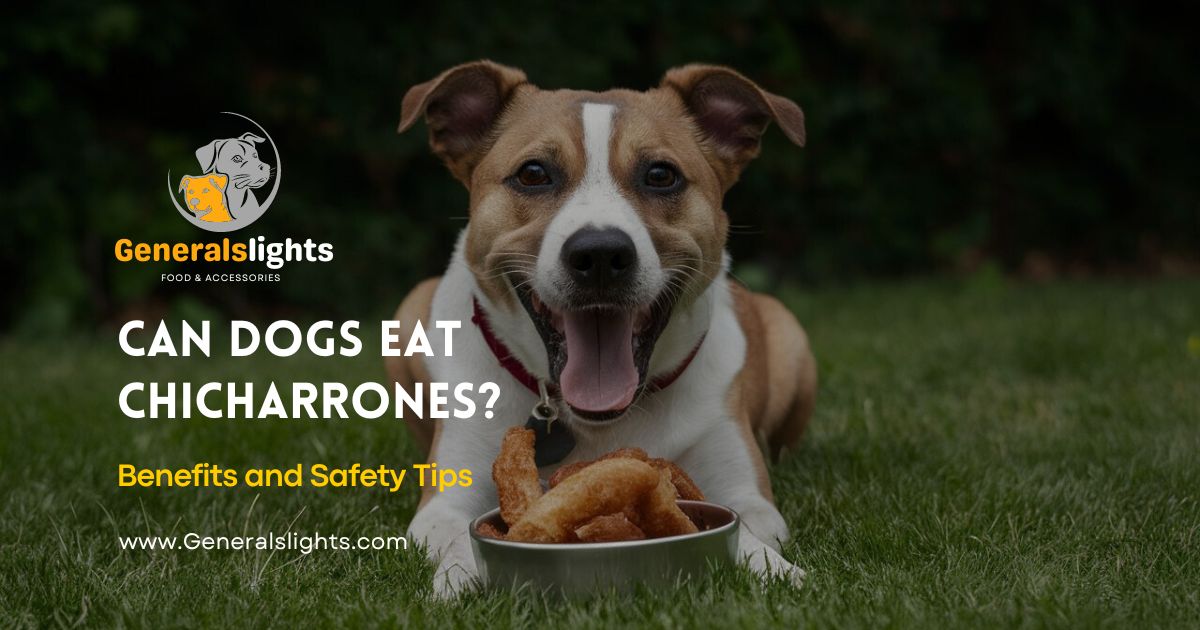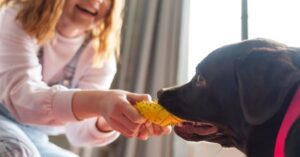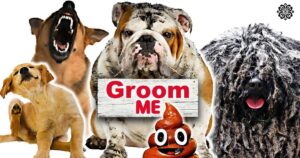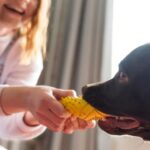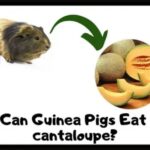Chicharrones, or crispy fried pork rinds, are a popular snack for people, but are they safe for dogs? Understanding their impact on canine health is crucial, as these treats can pose risks due to their high fat and salt content. Let’s explore whether chicharrones are a suitable option for your furry friend.
Imagine your dog’s eager eyes as you munch on a crunchy Can Dogs Eat Chicharrones? While it might be tempting to share, can this savoury snack harm your pet? With their rich, fatty crunch and salty kick, chicharrones may not be as dog-friendly as they seem. Let’s dig into why.
Chicharrones are fried pork rinds high in fat and sodium, which can lead to health issues in dogs such as obesity and pancreatitis. Their ingredients and preparation make them an unsuitable treat for pets. Understanding these risks helps ensure your dog’s diet remains healthy and balanced.
What Are Chicharrones?
Chicharrones are crispy fried pork rinds popular in various cuisines, particularly in Latin American and Spanish dishes. They are made by frying pork skin, often seasoned with spices. The result is a crunchy, flavorful snack that is high in fat and calories. While enjoyed by many, chicharrones are rich in sodium and saturated fat, which can pose health risks if consumed in excess.
For dogs, these factors can lead to digestive issues, obesity, and more serious health conditions. Understanding the composition of chicharrones helps highlight why they may not be a suitable treat for pets.
Nutritional Impact of Chicharrones on Dogs
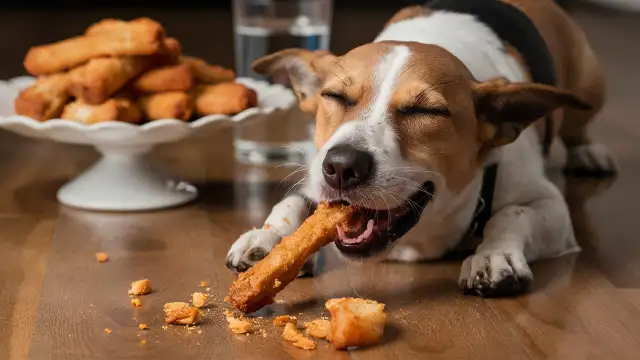
Chicharrones are high in fat, calories, and sodium, which can negatively impact dogs’ health. Excessive fat content can lead to obesity and pancreatitis, while high sodium levels can cause dehydration and hypertension. The richness of these snacks can also upset a dog’s digestive system, leading to gastrointestinal issues.
Unlike specially formulated dog treats, chicharrones lack the balanced nutrients that dogs need. Regular consumption of such treats can contribute to long-term health problems, making them an unsuitable choice for maintaining your pet’s well-being.
Veterinary Opinions on Feeding Chicharrones to Dogs
Veterinarians generally advise against feeding chicharrones to dogs due to their high fat and sodium content. These treats can increase the risk of obesity, pancreatitis, and hypertension. Vets often recommend choosing treats that are specifically formulated for dogs.
Which provide balanced nutrition and are less likely to cause health issues. If a dog accidentally consumes chicharrones, it’s best to monitor them closely and consult a veterinarian if any adverse symptoms arise.
Common Health Concerns
Common health concerns from feeding chicharrones to dogs include obesity, due to high fat content, and pancreatitis, which can result from excessive fat. High sodium levels can lead to dehydration and hypertension. Digestive upset is also possible, causing discomfort and gastrointestinal issues.
Recommendations for Pet Owners
Pet owners should avoid feeding chicharrones to dogs due to their high fat and sodium content. Instead, opt for treats specifically designed for dogs, which offer balanced nutrition. Always consult a veterinarian before introducing new foods into your dog’s diet to ensure their health and safety.
Potential Risks and Side Effects
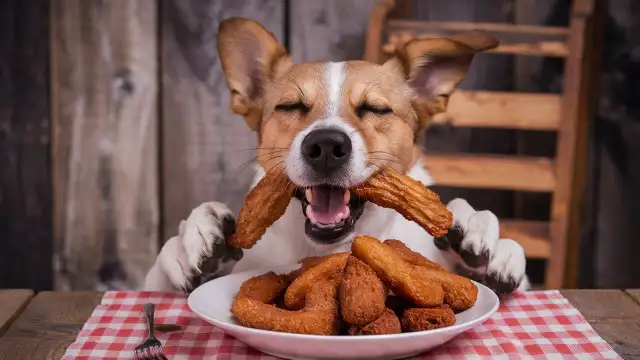
Potential Risks:
- Obesity: High-fat content can lead to weight gain and related health issues.
- Pancreatitis: Excessive fat intake can cause inflammation of the pancreas.
- Hypertension: High sodium levels may increase blood pressure.
- Digestive Upset: Can cause gastrointestinal discomfort and diarrhoea.
- Dehydration: Excess sodium can lead to excessive thirst and dehydration.
Side Effects:
- Vomiting: Upset stomach from high fat content.
- Diarrhea: Possible gastrointestinal disturbances.
- Lethargy: Low energy levels due to digestive strain.
- Excessive Thirst: Resulting from high sodium intake.
- Abdominal Pain: Discomfort from digestive upset.
Safe Treat Alternatives for Dogs
| Treat Type | Benefits |
| Carrot Sticks | Low in calories, high in fibre and vitamins. |
| Apple Slices | Provides vitamins and antioxidants, low in fat. |
| Green Beans | Low-calorie, high in fibre and essential nutrients. |
| Commercial Dog Treats | Formulated for balanced nutrition and health. |
| Pumpkin | Good for digestion, and is rich in vitamins and fibre. |
Benefits of Choosing Appropriate Treats Over Chicharrones.
Choosing appropriate treats over chicharrones ensures a balanced diet for your dog, reducing risks of obesity, pancreatitis, and digestive issues. Healthy treats provide essential nutrients and support overall well-being while being safer and more digestible for pets. They help maintain optimal health and prevent long-term health problems.
How to Handle a Dog’s Accidental Consumption of Chicharrones
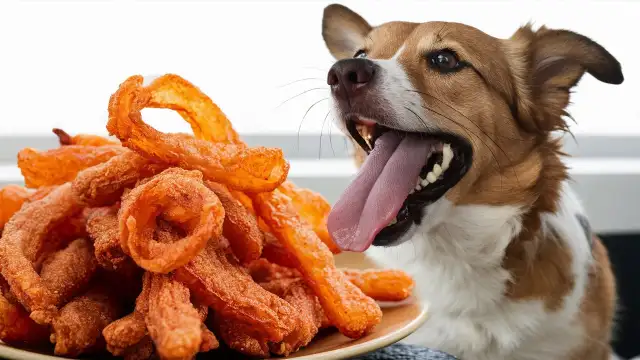
If your dog accidentally consumes chicharrones, monitor them closely for any signs of distress, such as vomiting, diarrhoea, or lethargy. Ensure they have access to plenty of fresh water to help with dehydration. Avoid giving additional food or treats until their condition stabilizes.
Contact your veterinarian for guidance, especially if symptoms are severe or persistent. Your vet may recommend a visit for a thorough examination. To prevent future incidents, keep chicharrones and other harmful foods out of reach and educate family members about safe pet practices.
FAQs
Can dogs eat chicharrones?
No, chicharrones are high in fat and sodium, which can harm dogs.
What risks do chicharrones pose to dogs?
Risks include obesity, pancreatitis, dehydration, and digestive issues.
What should I do if my dog eats chicharrones?
Monitor for symptoms and consult a vet if any adverse effects occur.
Are there safe treatment alternatives for dogs?
Yes, consider carrots, apples, green beans, and commercial dog treats.
Why are chicharrones harmful to dogs?
They contain excessive fat and sodium, which can lead to health problems.
Conclusion
Chicharrones are not suitable for dogs due to their high fat and sodium content, which can lead to serious health issues. Opt for healthier, dog-friendly treats to ensure your pet’s well-being. Always consult your veterinarian before introducing new foods to your dog’s diet for optimal health.
Read More :

Emerson is an expert in the world of pets, specializing in understanding diverse breeds, nutrition, and health. His deep knowledge ensures your pets receive the best care, from balanced diets to top-notch health advice, keeping them at their happiest and healthiest.
